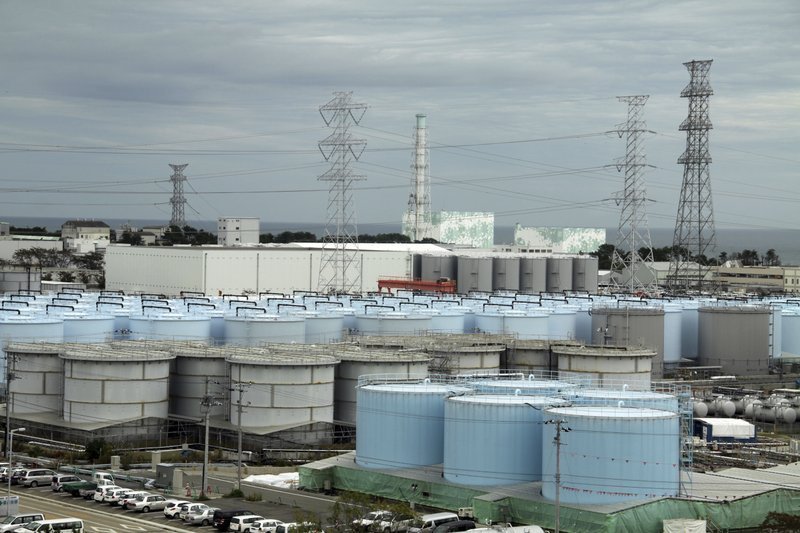 |
Storage tanks for treated contaminated water are seen at Fukushima Daiichi nuclear power plant in Okuma town, Fukushima prefecture. (AP-Yonhap) |
The South Korean government has again raised concern about Japan’s plans to treat radioactive water from the stricken Fukushima nuclear plant and release it into the sea, saying Tokyo has only looked at the short-term impact on the marine environment.
Korean officials and experts voiced their concerns to their Japanese counterparts at a special virtual session held last Friday, in regard to a draft report released by the Tokyo Electric Power Co., the state-run operator of the wrecked plant, about the impact of the planned disposal.
Last month, Tepco released a report saying the discharge of the radioactive water into the sea would have a “very minimal” impact on the environment, marine life and humans, based on a data simulation. It also said the disposal would be carried out in accordance with international security standards.
“The (Korean) experts raised questions over Japan’s simulation that only seemed to focus on the short-term (impact), not considering the changes it will have on the land and marine environment in the long term,” a Foreign Ministry official, who spoke on condition of anonymity, said Tuesday.
The Korean experts also took issue with the 10-square-kilometer area set aside by Tepco for the simulation to assess the radiation levels of the seawater, saying it was too large and that the water would dilute the radiation.
The Seoul government plans to submit additional questions and concerns to Tokyo in writing.
In April, Japan decided that in 2023 it will dump the 1.25 million metric tons of wastewater it has collected since the 2011 earthquake and tsunami. Japan said this is unavoidable as the Fukushima Dai-ichi nuclear plant is expected to run out of storage space for the radioactive water by the summer of 2022.
The decision was met with fierce backlash from neighbors -- including Korea, China and Russia -- as well as from the Japanese fishing industry and environmental activists around the world.
Japan insists the wastewater is safe as it will be filtered and diluted to remove most of the radioactive substances, except for tritium, which it claims to be not dangerous in small amounts. But opponents say the sheer volume of water to be dumped presented a risk to human health, food safety and the maritime environment.
Korea has made diplomatic efforts to oppose Tokyo’s decision and is also pushing Japan to provide transparent information to ensure the safety of the planned discharge.
During the latest session, Korea expressed regret that Japan released the report on the premise that it will release the radioactive water despite Seoul’s consistent concerns. It also voiced concerns over the “uncertain” impact the discharge will have on humans and the environment, the Foreign Ministry said.
In regards to Seoul’s earlier request to form a joint consultative body with Tokyo to discuss the release, the ministry official said the two sides recognize the need to exchange information and that Tokyo is conducting an internal review concerning the matter.
By Ahn Sung-mi (
sahn@heraldcorp.com)








![[Today’s K-pop] Blackpink’s Jennie, Lisa invited to Coachella as solo acts](http://res.heraldm.com/phpwas/restmb_idxmake.php?idx=644&simg=/content/image/2024/11/21/20241121050099_0.jpg)